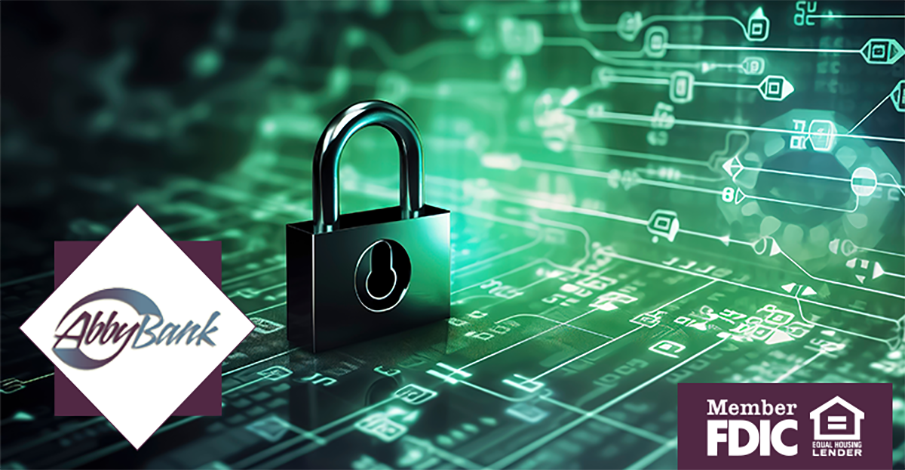Written by
Things to Keep an Eye Out For:
1. Unusual Account Activity
One reason why it’s crucial to have notifications turned on for your bank accounts is so you can be alerted when withdrawals occur. If you get an alert and you weren’t the one to use your card, you can take immediate action and contact your bank to figure out the issue. Having these alerts turned on will give you peace of mind about your finances. AbbyBank offers Card Controls that can give you added alerts and allow you to turn your card on or off in a matter of seconds!
2. Emails from an Unknown Sender
Be careful with emails from an unknown sender as they may contain files or links that are meant to infect your machine with viruses and malware. Cybercriminals have a way of making their emails look legitimate, so even if it looks like it’s from an e-commerce site or financial institution, double check before clicking around. If you are unsure if an email is from your bank, call the bank to verify. If the email has a phone number listed, do not automatically call that number for the bank but rather do your own research if you are not sure of your bank’s number to make sure you are calling the actual number for the bank and not potentially a false number given in the email if the email doesn’t happen to be from your bank.
3. Messages Asking for Money or Personal Information
Just as cybercriminals can mask themselves as businesses, they can also pretend to be people you know. It’s easy to figure out the names of friends and family members with the help of social media. If you get a message or email from someone claiming to be a person you know, always check with that individual over the phone or in person. Plus, you should avoid sharing personal or financial information over email or messenger – wait until you can talk on the phone or see them.
Ways to Take Action:
1. Always Keep Your Devices Updated
One of the best ways to keep attackers out is to keep the software on your devices up to date. Check to see if there is an automatic update option on your computer or mobile devices.
2. Better Safe Than Sorry
If the email you receive looks legitimate but you’re still not sure, it’s better to be safe than sorry. When in doubt, just delete it.
3. Multi-Factor Authentication
Most of your accounts give you the option to set up multi-factor authentication. This is always a good idea just in case a cybercriminal is able to get past the first layer of account security.
Remember that when it comes to cybercriminal activity, it’s always better to be skeptical than to assume the best. Keep you and your financial information secure by following these helpful tips!



